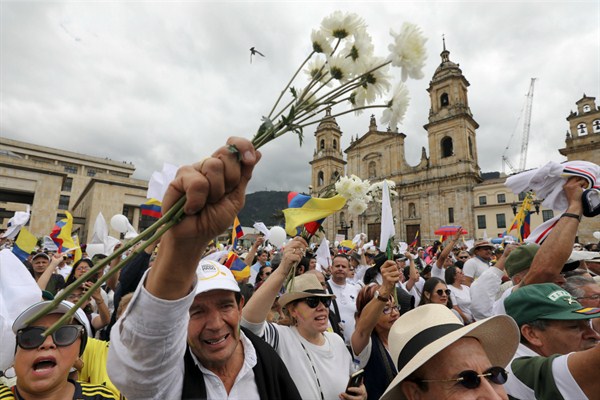Last month, a man linked to the National Liberation Army, or ELN, rammed a truck laden with explosives into a school in Bogota where cadets were training for the Colombian National Police. The blast, which killed at least 21 people and injured 68 more, jolted Colombian society and brought back memories of similar attacks in the early 1990s. Hundreds of thousands of Colombians took to the streets to condemn terrorism.
After the ELN claimed responsibility for the attack, President Ivan Duque suspended peace talks with the guerilla group indefinitely. Many observers worried about the prospect of a return to widespread violence in Colombia, where the landmark peace treaty with the Revolutionary Armed Forces of Colombia, or FARC, also looks more fragile. Since the signing of that accord in 2016, the ELN has been Colombia’s largest remaining guerrilla group. Peace talks with the ELN started in March 2016 under then-President Juan Manuel Santos, the champion of the FARC peace process.
January’s attack was the last straw in a strained relationship between Duque’s administration and the ELN. Last September, just a month after he took office, Duque suspended the talks, which were being hosted in Havana, in order to increase pressure on the guerrillas. The next month, Duque announced that the talks would remain suspended until the ELN stopped their criminal activities, following the killing of two transit policemen in northern Colombia. In late January, after the Bogota bombing, Duque demanded that the Cuban government extradite 10 ELN members who are still in Havana, so they could be prosecuted in Colombia. Cuba refused, condemning the bombing but saying it would follow the protocols agreed to when the peace talks began, which provide security guarantees for ELN commanders to return to Colombia.

